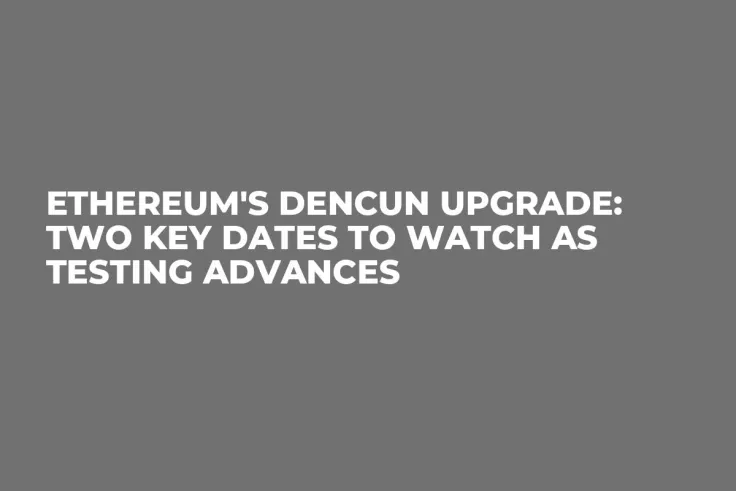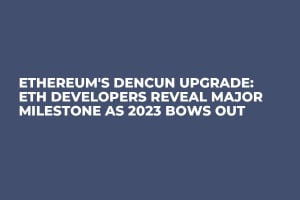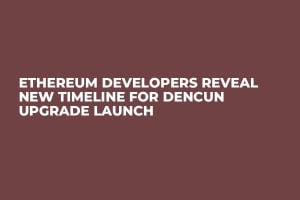
Disclaimer: The opinions expressed by our writers are their own and do not represent the views of U.Today. The financial and market information provided on U.Today is intended for informational purposes only. U.Today is not liable for any financial losses incurred while trading cryptocurrencies. Conduct your own research by contacting financial experts before making any investment decisions. We believe that all content is accurate as of the date of publication, but certain offers mentioned may no longer be available.
Christine Kim, vice president of research at Galaxy, shared a quick recap of the latest Ethereum developers' call.
Going forward into the Dencun testing timeline, two key dates might be critical to watch ahead of mainnet activation.
The Cancun/Deneb upgrade on the Sepolia and Holesky testnets has been scheduled for activation on Jan. 30 and Feb. 7, respectively. In this regard, Ethereum core developer Tim Beiko says to expect an announcement with client releases in the coming week.
The much-anticipated Dencun upgrade follows last year's Shapella upgrade. According to ETH developers, it will first be deployed to the Goerli testnet, then, if no major issues are found, to Sepolia and Holesky. Once Dencun is running smoothly on all three testnets, mainnet activation will be scheduled.
During the week, the Dencun network upgrade was activated on the Goerli testnet. The upgrade included several changes, most notably the introduction of ephemeral data blobs with EIP-4844, also known as "protodanksharding," which will help slash L2 transaction fees.
Ethereum developer Tim Beiko recounts the events that led to Goerli not finalizing immediately after the Dencun upgrade was initiated. Due to Goerli having an open validator set, there was an expected but significant drop in validator participation at the fork.
In addition to this, a client bug on the network with Prysm set the historical root value to 0 instead of copying over the last historical root when Deneb was activated.
Once the bug showed up on Goerli, its cause was found, a fix was made and a release was put out shortly after.
With more validators coming online and one client team upgrading some nodes that had been missed, the Goerli network eventually finalized.
With this significant milestone reached, Ethereum developers are now proceeding to fork the Sepolia and Holesky testnets before the mainnet launch.
The much-anticipated Dencun upgrade combines changes to both Ethereum's consensus and execution layers. The list of protocol changes includes: EIP-1153: Transient storage opcodes; EIP-4788: Beacon block root in the EVM; EIP-4844: Shard Blob Transactions; EIP-5656: MCOPY (memory copying instruction); EIP-6780: SELFDESTRUCT only in the same transaction; EIP-7044: Perpetually Valid Signed Voluntary Exits; EIP-7045: Increase Max Attestation Inclusion Slot; EIP-7514: Add Max Epoch Churn Limit and EIP-7516: BLOBBASEFEE opcode.


 Dan Burgin
Dan Burgin U.Today Editorial Team
U.Today Editorial Team